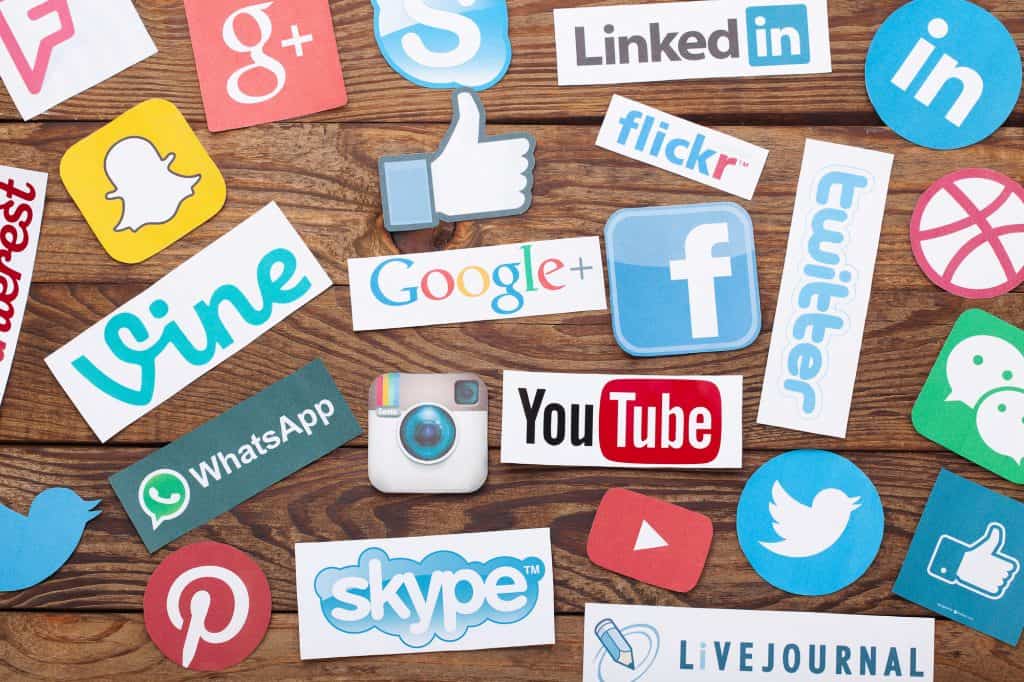If you are looking for a way to sell your paperback books, ebooks, and audiobooks for months and years into the future, then social media may be your answer. Social media platforms allow you to find raving fans who are interested in what you have to say.
If you are an author new to promoting yourself, your ebooks, and your audiobooks, you may be wondering if social media is for you. Social media refers to online platforms that are designed to connect with others. Since forming connections is the primary purpose, it’s important that you engage with your audience on a platform that you already like.
Authors need social medial to find fans who love their paperback books, ebooks, and audiobook. These are fan who are looking forward to the author’s social media content and (most importantly) willing to buy their work.
Authors should be on at least one social media site in the beginning. Below, I’ve listed several social media options:
- YouTube
- GoodReads
- Podcasting
This isn’t an exhaustive list. There are probably hundreds more that you may use instead of the list above. The only real criterion is that it should be a platform where you’re comfortable.
In rest of this article, I’ll go into detail on each of the social media sites I’ve listed above.

YouTube
This is perhaps my favorite way to reach new fans. This platform doesn’t charge money to reach potential new listeners and readers. In fact, it’s not nearly as crowded as other platforms like Facebook and Twitter.
The way it works is you create a brand account name which will be similar to your author name. A good way to distinguish between your personal account and your brand account would be to include the word “author”.
Once you have created your brand account, start posting content related to your:
- writing process
- recording studio
- ebook cover
- images related to your paperback book
- research you needed for your book
- anything else your audience would enjoy seeing
The most important thing to be successful with YouTube is to post regularly. I would recommend posting once a week or once every other week. Your videos could invite fans to click on other videos on your channel or you could direct fans to join your email list for more information about you and your audiobooks.
Your posts should follow an outline similar to this:
- Intro: 1) A hook which is a question that includes a benefit; 2) An outcome which tells fans what they’ll get from the video; 3) A testimonial which is the reason to trust what you’re saying.
- Answer the Hook: Tell a story or outline a sequence of steps
- Ask a question that requires a comment: The question should be open ended
- Outro: Ask followers to like or dislike the video, subscribe, click on the next video, join your email list, visit your website for more information, etc.
If fans comment on your posts, make sure you respond to every comment. The goal is to create engagement with your fans.
When you’re new to YouTube, it’s perfectly fine to use your iPhone. The video quality from your iPhone is more than adequate. You should make sure you’re close enough to the phone so that your words are clear. Also, make sure you have extra lights, or you’re near an open window for acceptable lighting on your video.
The main challenge with YouTube is that it takes time to create and edit a video. If you’re creating a video that points fans to your website or email list, the editing may be simpler. However, if you want to show a book trailer or have a sample of your audiobook read, then you’ll need more extensive editing.

For many years, Facebook was the best way for authors to reach their fans. Authors could create a Facebook page that featured their author business, which wasn’t the same as their personal Facebook profile. Next, authors would alert their fans to follow their Facebook author page. As the author created new posts on their author page, Facebook with alert all of their followers.
Some things you could do to create engagement include:
- Make word games for your fans
- Play guessing games related to your ebooks, paperback books, or audiobooks
- Share your reading list
- Display a memorable quote from your audiobook
Eventually, Facebook changed the rules and forced authors to pay if they wanted their fans to see their posts. If you have a Facebook page and create a post, only about 1% of your followers will see that post.
Some authors don’t have the money to continually pay to have their fans see their posts. Instead, they created Facebook groups. These are mini-forums in Facebook that allow your fans to interact with you and each other.
Running a group requires a moderator, and it is quite time consuming. It’s very important to set the rules for the group. Some example rules are no bad language, be respectful, etc.
For a new indie author, these groups may take time that could be used writing or narrating new books. It’s a trade-off because you need to stay in contact with your fans in order to sell more books and, on the other hand, you need time to actually write the books.
GoodReads
GoodReads has one advantage over Facebook – it was designed specifically for readers and writers. This platform is composed of hundreds of mini-forums where readers who are interested in a specific genre get together and discuss ebooks and paperback books. This is the best place for an author to see what their fans like about similar ebooks in their genre.
The way it works is you create an author account. GoodReads will offer to link your Facebook account to your author account. Don’t do this! Instead, use an email address that isn’t known to Amazon.
It’s extremely important that you don’t allow Amazon too much insight into who your friends are on Facebook. If you’ve friended some of your followers, and they leave a review of your ebook or paperback book on Amazon, Amazon will delete their review! I’m referring to legitimate reviews from your fans.
Amazon owns GoodReads, and they are looking for ways to remove what they feel are biased reviews. This is why they don’t want your friends and family leaving reviews. However, you should have reviews from your fans. The best way around this is to use an email address that Amazon and no other social media platform are aware of.
Once you have your author account created, claim your book from Amazon. Continue by customizing your author page. Make sure your name is displayed the way you’d like and add an image. Also add a GoodReads widget that shows your fans what you’re reading.
You could also use GoodReads like a blog. These are some of the things you could do to find fans:
- Show information about your writing process
- Share ebook or paperback book reviews
- Display quotes from your book
- Get on a book list and add your ebook
- Hold a question and answer session
- Create quizzes related to your genre
- Make book polls
- Do a paperback book or ebook giveaway
The real issue here is you don’t own the list of people who like your content on GoodReads. You’re only building a readership for GoodReads. I would recommend doing some of the things on the list above but concentrating on getting fans to your email list.
In addition, GoodReads is geared toward ebooks and paperback books, but not necessarily audiobooks. You’ll have to find a way to expose your new fans to your audiobooks. You can do this by getting them to your website where you display an audio sample for them.
GoodReads also has an option for paid advertising. If you’re new to ebook and audiobook creation, focus on the free options. Get good at connecting with your fans and having them reach out to you before you spend any money.
Many professional writers engage on Twitter. This is the place to hear what Stephen King is up to or how JK Rowling is doing. For Twitter to work, it’s important to stay active by tweeting 4-6 times per day. In fact, most of the time you need to be retweeting, following other authors, and making new connections.
If you organize your time on Twitter, you don’t have to spend much time Tweeting. This is a platform that may work very well for an indie author. Periodically, you’ll need to let others know about your ebooks or audiobooks when they come out, but most of the time you’ll spend making connections with other authors.
Somethings you could tweet about include:
- Hold audiobook cover reveals
- Ask open ended questions
- Share your playlist of music you listen to while writing
- Create a tweet of your fan’s frequently asked questions
The way it works is you should follow other authors—especially those who write in your genre. Next, go to their followers and start following them. However, try to maintain an even ratio of the number of people you follow and the people who follow you back.
In addition, use hashtags when you tweet. Some popular writer hashtags are #writerslife, #writerscommunity, and #amwriting. This will increase the number of people who organically follow you.
Organize your time so that you’re only doing one or two things each time you’re on Twitter. Also, you can use automation tools that will automatically tweet for you so that you aren’t on the website 4-6 times a day.
One thing to keep in mind is even if you’re tweeting frequently, millions of other people are also tweeting all day long. The result is that your tweets get buried very quickly and your fans may have trouble finding them.

The Instagram platform is primarily for visual content like images and video. However, it’s still useful for authors. This is a good place to share information about your writing process, photos of your workspace or your audio studio. In addition, you could show images from your ebook or audiobook. You could also host giveaways or contests.
One of the best uses for Instagram is to log your travels if they are related to your ebook or audiobook. These images allow your followers to see your books through your eyes and create a great amount of engagement.
Other items you can post include images of you in your writing space, author events like book signings, and motivational quotes. This is also a great platform for collaborations with other authors because you’ll become exposed to a new set of readers.
Use hashtags on Instagram to help your followers find you. There are many used by authors. For example #writersofinstagram is popular.
Create an Instagram story which is a short video. These quick videos allow you to make a comment about something relevant to your audiobook recording or something your fans would enjoy.
It’s also important to follow other authors on Instagram. If any fans leave a comment or ask a question, reply as quickly as possible. Also, comment on other authors’ posts to help build your fan base.
Keep in mind, that as Instagram has increased the number of advertisements on their site, they have also decreased the organic reach to followers. The organic reach has decreased so that 7% of your followers will see your images unless you pay for advertising. Instagram is transitioning to a model similar to Facebook’s, where you need to pay to have your posts seen by your fans. This alteration in Instagram’s dynamics signifies a departure from the previous organic reach and introduces a system that prioritizes sponsored content. If you desire further details on this alteration, kindly click here to explore the specifics.
Like Instagram, Pinterest is also an image-driven site. However, it differs in one important way because it is a search engine.
The way it works is you post images that you think would be relevant to your audience. These images are called “pins”. When you gather a number of pins together, they are now part of a “Pinterest board”. These pins are more likely to be shared if they’re in niches related to fashion, travel, recipes, parenting, etc.
For example, a cozy mystery writer who includes recipes related to her murder mysteries at the back of her paperback book would fit perfectly on Pinterest. These recipes do best if they’re unusual types of desserts.
In addition, your pins that are part of popular Pinterest boards are much more likely to be found. It could be relatively easy for an author to create a following that has the right type of content and is able to join a popular board.
It’s important to remain fairly active on Pinterest by posting 20-30 pins per day. This is possible with automation. The best-known tool for Pinterest is Tailwind. Tailwind allows you to select pins for the week or the month that will automatically drip to Pinterest while you continue writing or recording your audiobook.
Pinterest is also changing to a fee-based system like Facebook. Thus, it’s difficult to get fans off of Pinterest and onto your website where you can add them to your email list.
Something to note is that Pinterest not as social as a Facebook group or even the comments section of YouTube. This is an image search engine where followers aren’t too interested in engaging with you while on the site. However, if you can get them from Pinterest to your blog or your Facebook group, you could start to build a community of readers who are interested in your niche.
Podcasting
Podcasting refers to audio shows that anyone, including authors, can create to focus on a specific topic or niche. For example, a romance author may have a podcast on all things romance related.
I don’t know if podcasting is completely in the social media space because there is no place for fans to comment or interact with you. What many podcasters do is attach their podcast episodes to their website, a Facebook group, or a forum (i.e. Slack channel). Another idea is to use Twitter to encourage fans to comment on the podcast they’ve just heard.
Creating a weekly or biweekly podcast is really no more difficult that recording an audiobook. Much of the same equipment can be used for both. You’ll need a quality microphone and software to edit your audio. I recommend Audacity, which is free.
One last thing is you’ll need a way to treat your space. This means you’ll need to cover hard surfaces like the walls and floor with soft material so that you limit the amount of echo that appears in your audio files.
If you would like to learn more about treating your studio, take a look at my article Audiobook Recording Home Studio Tips.
When you create a new podcast, use a hosting company to store your audio files. Some free examples include: Podbean, Buzzsprout, Spreaker, Podiant, and Anchor. Once your audio files are hosted, you can use Real Simple Syndication (RSS) to let iTunes know where your podcast is listed. If you use iTunes, fans with iPhones can easily find your podcast.
You can use SoundCloud to make your podcast audio available on your website. Another option is to upload your audio to YouTube. There are so many options available to you.
What should you discuss? You should chat about the same things you would mention on any other social media platforms. For example, what is your writing schedule, what do you do to prepare for your audiobook, answer reader questions, and more.
Podcasting is really well-known for interviews. This is a place where you can interview other authors in who write in your genre. In this way, you can attract their fans, and they may become interested in your books as well.
The downside of Podcasting is that creating and editing a podcast episode can be quite time consuming. In addition, there isn’t a place to engage your audience on iTunes where your fans are listening to the podcast. You need to find a way to pull them off iTunes to your website or your own forum and to have discussions.

Which social media is best for writers?
Authors should start on the social media platform they use regularly, and engage with their audience. Building a following is a slow process that takes time. However, if you’re on a platform you genuinely enjoy, you’ll love the day-to-day actions to attract followers.
I would also suggest choosing a platform that is free. Beginning authors usually have limited funds to pour into social media. Therefore, it’s best to use your time to increase your following.
If you choose to use more than one form of social media, then only use one and wait until you’ve built a following. Once your following is stable, use a virtual assistant to maintain the platform while you start on the next social media platform.
How do authors use social media?
Authors use social media platforms to promote their ebooks and paperback books. In addition, they can also be used to promote your audiobook. For example, SoundCloud allows users to save a sample of their audiobook. You can attach this link to your website, blog posts, and your preferred social media platform.
Writers can use Audible/ACX’s bounty links to give new listeners a chance to get your audiobook for free. If you would like to learn more about Audible/ACX’s bounty links, take a look at my article How to Sell Audiobooks.
Most social media sites work similarly. You’ll start by completing your profile information. In your profile, make sure you also provide a link to your website where you can showcase your ebooks and audiobooks. You also want to have an email magnet to add members to your email list.
How do you automate social media posts?
Authors can automate their social media posts by using free tools that automate posting. Buffer and Hootsuite are the best known free social media scheduling tools. It’s best to write a batch of posts and schedule them into the future. After all, you’ll want to spend most of your time writing—not browsing around Twitter and Facebook.
However, sometimes you simply have to log on to reply to comments or engage more personally with your followers. In this case, you’ll need to schedule your time. These sites are designed to keep you engaged. Thus, it’s very easy to log on and waste 2 or 4 hours.
Instead, plan what you need to get done a head of time. Below is a schedule you could start with:
- Log on and like or comment (5 or 10 minutes)
- Upload new content
- Log off and write!
Some examples of new content include:
- Post user images (with their permission)
- Poll your fans for their opinions (i.e. best ebook cover)
- Hold a mini-question and answer sessions
- Get fans involved in the process of creating your audiobook
If you would like to learn more about marketing your audiobook, take a look at my article How to Launch an Audiobook.
How can you sell books without social media?
Some writers are just not interested in any social media platforms. This makes sense because some people simply prefer human to human interactions.
How can you promote your ebook or audiobook without social media? These are some ideas that require a bit of work, but probably less than tweeting all day long.
- Email Marketing: Use email marketing to stay in contact with your followers. Offer an email magnet and stay in contact with your audience on a regular basis. This is my favorite non-social media method of reaching an audience. You own your list, and you control how you connect with them.
- Book Club: Find book clubs in your area that have your target audience. Join the book club and participate.
- Speaking: Find an event and become a speaker. Keep in mind that you’ll need to make sure that the audience at this event is also your target audience. Thus, you’ll become exposed to new fans.
- Guest Blogging: This involves finding blogs that have your target audience and contacting the owner to offer a blog post that will benefit their audience. If they agree, usually the bottom of your blog post will point back to your website. This will expose you to their audience.
- Book Readings: Schedule book readings at your local library. The library will let their patrons know about you. The best readings I’ve ever experienced were done by the author. Even if that author made mistakes, I still enjoyed the energy the author brought with the reading.
Conclusion
This article evaluates some of the more popular social media platforms. My favorite is YouTube because I feel that your fans get a more human impression of you. People buy from you because they know, like, and trust you.
Which platforms have you tried? Have you sold any ebooks or audiobooks as a result? Let me know in the comments below.

